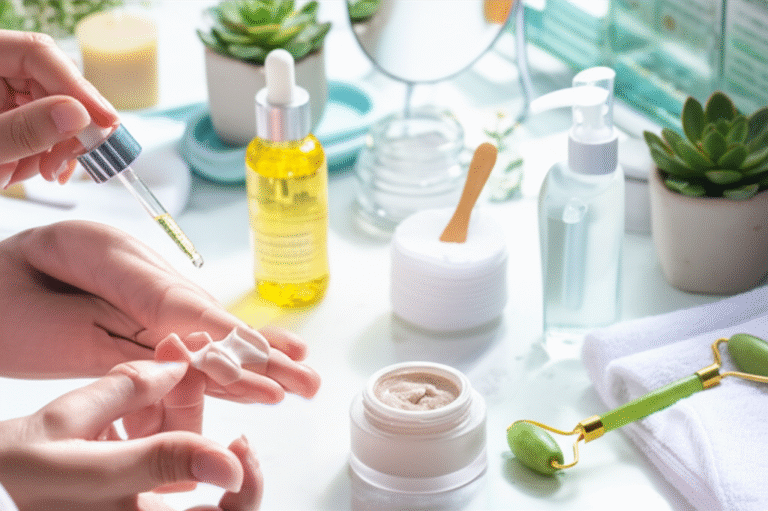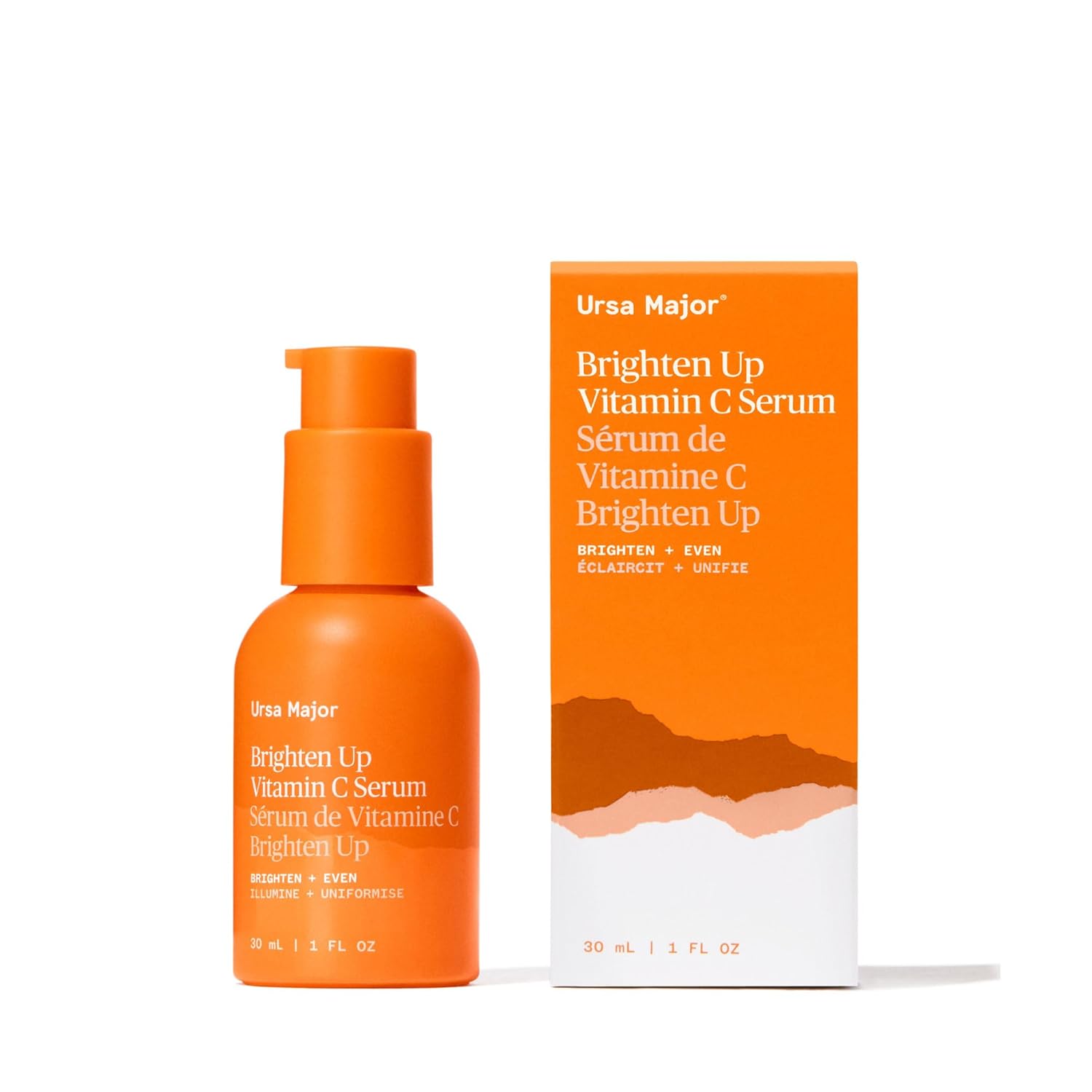For men seeking healthier skin, natural skincare essentials are simple, effective, and easy to integrate. Focus on gentle, plant-based cleansers, hydrating moisturizers, and sun protection for a confident, glowing complexion without harsh chemicals.
Navigating the world of skincare can feel overwhelming, especially for men who might be new to it. You’ve likely seen countless products with complicated ingredients and heard conflicting advice. It’s easy to feel confused about where to start, or even if you need a routine at all. But achieving healthy, great-looking skin doesn’t have to be complicated or expensive. With the right simple steps and natural products, you can build a straightforward routine that works for you.
This guide is here to cut through the noise and give you the essential knowledge about natural skincare products for men. We’ll break down exactly what you need, how to use it, and why natural ingredients are a smart choice. Get ready to discover a simple path to clearer, more confident skin!
Why Choose Natural Skincare Products for Men?

Men’s skin is similar to women’s in many ways, but it can have some specific needs. Men’s skin often produces more oil due to testosterone, making it prone to breakouts. Shaving can also cause irritation, redness, and ingrown hairs. Because of these factors, a thoughtful, tailored approach to skincare is beneficial.
Choosing natural skincare products is a fantastic way to address these needs gently and effectively. Unlike synthetic ingredients, natural formulations often harness the power of plants, minerals, and other naturally derived sources. These ingredients are frequently packed with vitamins, antioxidants, and essential fatty acids that can nourish and protect the skin. Plus, they tend to be less likely to cause irritation or allergic reactions, which is a major win for sensitive skin or for those who experience discomfort from traditional products.
Natural ingredients work with your skin’s biology rather than against it. Think about ingredients like aloe vera for soothing inflammation, green tea for its antioxidant properties, or jojoba oil which mimics the skin’s natural oils. These are nature’s own powerful tools for maintaining skin health and promoting a healthy, radiant appearance. By opting for natural skincare products, you’re not just choosing what goes on your skin; you’re choosing a gentler, more holistic approach to skin health that’s supportive and nurturing.
Understanding Your Skin Type: The First Step
Before diving into specific products, it’s crucial to understand your own skin. Knowing your skin type helps you select the most effective natural skincare products for men, ensuring they work for you, not against you. Typically, skin types fall into a few main categories:
- Normal Skin: Balanced, not too oily or too dry. Pores are usually small, and skin texture is smooth.
- Oily Skin: Skin appears shiny, especially in the T-zone (forehead, nose, chin). Prone to enlarged pores and breakouts.
- Dry Skin: Skin feels tight, may look dull, and can be prone to flakiness or irritation. Pores are often small.
- Combination Skin: A mix of types, usually oily in the T-zone and normal or dry on the cheeks.
- Sensitive Skin: Skin easily becomes red, itchy, or irritated by certain products or environmental factors.
A simple way to check your skin type is to wash your face with a gentle cleanser, pat it dry, and wait about 30 minutes. Observe how your skin feels and looks. Does it feel tight and dry? Is it shiny all over? Is only your forehead, nose, and chin shiny?
Understanding this will guide you in selecting the best natural ingredients. For oily skin, look for lightweight, non-comedogenic (won’t clog pores) natural ingredients. For dry skin, opt for richer, more emollient natural oils and butters. Combination skin might require a targeted approach – lighter products on oily areas, richer ones on dry patches.
The Genius Essentials: Your Natural Skincare Routine for Men
A robust skincare routine doesn’t need dozens of products. For men, a simplified, effective approach using natural ingredients is often best. Here are the foundational essentials:
1. The Gentle Cleanser
Cleansing is the bedrock of any skincare routine. It removes dirt, excess oil, sweat, and pollutants that can clog pores and lead to breakouts or dull skin. For men, especially those with oily or acne-prone skin, a good cleanser is non-negotiable. Natural cleansers often use gentle surfactants derived from plants or amino acids, avoiding harsh sulfates that can strip the skin’s natural moisture barrier, leaving it dry and irritated.
What to look for in a natural cleanser:
- Ingredients: Aloe vera, chamomile, green tea extract, glycerin, salicylic acid (derived naturally from willow bark), tea tree oil (use sparingly and diluted).
- Form: Foaming cleansers are great for oily skin, while cream or gel cleansers can be more suitable for dry or normal skin.
- Avoid: Sulfates (like Sodium Lauryl Sulfate or Sodium Laureth Sulfate), artificial fragrances, parabens, and alcohol.
How to use: Wet your face with lukewarm water. Apply a small amount of cleanser to your fingertips and gently massage it onto your face in a circular motion. Rinse thoroughly with lukewarm water and gently pat your face dry with a clean towel. Avoid rubbing, as this can irritate the skin.
2. The Hydrating Moisturizer
This is arguably the most important step after cleansing. Moisturizer replenishes the skin’s moisture, keeps it supple, and helps protect its natural barrier. Even oily skin needs hydration; skipping moisturizer can actually cause your skin to produce more oil to compensate. Natural moisturizers are rich in plant-based oils, butters, and humectants that hydrate without feeling heavy or greasy.
What to look for in a natural moisturizer:
- Ingredients: Hyaluronic acid (naturally occurring in the body), shea butter, cocoa butter, jojoba oil, argan oil, vitamin E, plant-derived ceramides. For men with oily skin, look for “”oil-free”” or “”non-comedogenic”” labels alongside clean ingredients.
- Form: Lotions are lighter for oily or normal skin. Creams are richer for dry or mature skin. Gels are excellent for very oily or acne-prone skin.
- Avoid: Mineral oil, petrolatum (unless very dry and needing an occlusive), artificial fragrances, parabens.
How to use: Apply a pea-sized amount to your face and neck twice a day (morning and night) after cleansing. Gently massage it in until absorbed.
3. The Essential Sun Protection (SPF)
Sunscreen is not just for beach days; it’s a daily necessity for preventing premature aging, wrinkles, dark spots, and skin cancer. The sun’s UV rays are a primary cause of skin damage, and consistent protection is key to maintaining youthful-looking skin. Natural sunscreens often use mineral filters like zinc oxide or titanium dioxide, which sit on top of the skin to block UV rays, rather than chemical filters that are absorbed into the skin.
According to the U.S. Food and Drug Administration (FDA), broad-spectrum protection (meaning it protects against both UVA and UVB rays) is crucial, and an SPF of 30 or higher is recommended for daily use. Mineral sunscreens are a great natural option, often favored for their gentleness on sensitive skin.
What to look for in a natural sunscreen:
- Ingredients: Zinc oxide, titanium dioxide. Look for products that also contain soothing ingredients like aloe vera or green tea.
- Form: Available as lotions, creams, or sprays. Lighter lotions or gels are often preferred for daily wear under makeup or on their own. Some offer a matte finish, which is great for controlling shine.
- Avoid: Oxybenzone, avobenzone, octinoxate (though some may find these acceptable, mineral options are generally preferred for a “natural” focus).
How to use: Apply generously to your face and any other exposed skin 15-20 minutes before sun exposure. Reapply every two hours, or more often if sweating or swimming. Many men prefer tinted moisturizers with SPF or lightweight, matte-finish formulas to avoid a white cast or greasy feel.
Bonus Essentials for Enhanced Skin Health
While the core three (cleanser, moisturizer, SPF) form the foundation, a few extra natural products can elevate your skincare game:
4. The Exfoliator (Use Wisely!)
Exfoliation removes dead skin cells that can make skin look dull and clog pores. This can help with skin texture, tone, and prevent ingrown hairs. Natural exfoliants typically fall into two categories: physical (like fine sugar or ground oats) and chemical (like AHAs from fruit acids or BHAs from willow bark). For men, chemical exfoliants are often more effective and less abrasive than vigorous physical scrubbing.
What to look for in a natural exfoliator:
- Ingredients:
- Physical: Fine sugar crystals, ground oatmeal, finely ground coffee beans.
- Chemical (AHAs/BHAs): Glycolic acid (from sugarcane), lactic acid (from milk), salicylic acid (from willow bark).
- Form: Scrubs (physical), toners or serums (chemical).
- Avoid: Harsh scrubbing beads (like plastic microbeads or large, jagged particles).
Frequency: Over-exfoliation can damage the skin barrier. Start with once a week and see how your skin responds. For sensitive skin, consider a gentle AHA or enzyme-based exfoliant.
How to use: After cleansing, apply or gently massage the exfoliator onto damp skin, avoiding the eye area. Rinse thoroughly with lukewarm water. Follow with your moisturizer.
5. The Targeted Treatment (Optional but Beneficial)
Depending on your concerns – like acne, dark spots, or fine lines – a targeted natural treatment can make a significant difference. These are usually serums or spot treatments.
- Acne: Look for natural antibacterials like tea tree oil (diluted) or salicylic acid (natural BHA).
- Hyperpigmentation/Dullness: Vitamin C serums (often derived from citrus fruits) are excellent antioxidants that brighten skin.
- Aging: Bakuchiol (a plant-based retinol alternative), peptides, and antioxidants like green tea or vitamin E can help.
How to use: Apply a few drops of serum to your face after cleansing and before moisturizing. For spot treatments, apply directly to the affected area.
Putting It All Together: A Sample Natural Skincare Routine for Men
| Step | Morning Routine | Evening Routine | Key Natural Ingredients to Look For |
|---|---|---|---|
| Cleanse | Gentle Cleanser | Gentle Cleanser | Aloe Vera, Green Tea, Glycerin |
| Treat (Optional) | Brightening Serum (e.g., Vitamin C) | Targeted Treatment (e.g., Salicylic Acid for acne or Bakuchiol for anti-aging) | Vitamin C, Salicylic Acid (from Willow Bark), Bakuchiol |
| Moisturize | Lightweight Natural Moisturizer | Moisturizer (can be slightly richer if needed) | Hyaluronic Acid, Jojoba Oil, Shea Butter |
| Protect | Natural SPF 30+ Sunscreen | N/A | Zinc Oxide, Titanium Dioxide |
| Exfoliate | N/A (typically done in the evening) | Natural Exfoliator (1-2 times per week) | AHAs (fruit acids), BHAs (willow bark), fine physical exfoliants |
Consistency is key. Even with a simple routine, performing it daily will yield the best results over time. Remember to listen to your skin; if a product causes redness or irritation, discontinue use.
Popular Natural Ingredients and Their Benefits
Here’s a look at some powerhouse natural ingredients you’ll find in effective men’s skincare:
| Ingredient | Key Benefits | Best For Skin Types |
|---|---|---|
| Aloe Vera | Soothing, anti-inflammatory, hydrating, promotes healing. | All skin types, especially sensitive and irritated skin. |
| Green Tea Extract | Potent antioxidant, anti-inflammatory, can help reduce redness and protect against UV damage. | All skin types, particularly oily, acne-prone, and sensitive skin. |
| Jojoba Oil | Mimics skin’s natural sebum, balancing oil production, moisturizing without greasiness. | Oily, combination, and normal skin. |
| Shea Butter | Deeply moisturizing, rich in vitamins and fatty acids, helps with dryness and irritation. | Dry, mature, and normal skin. |
| Hyaluronic Acid | Attracts and retains moisture, plumping the skin and reducing the appearance of fine lines. | All skin types, particularly dry and aging skin. |
| Salicylic Acid (BHA) | Exfoliates inside pores, great for decongesting pores, reducing acne and blackheads. | Oily, acne-prone, and combination skin. |
| Vitamin E | Antioxidant, protects skin from damage, aids in skin repair and moisturization. | All skin types, beneficial for dry and aging skin. |
| Zinc Oxide | Mineral sunscreen ingredient, provides broad-spectrum UV protection, often has anti-inflammatory properties. | All skin types, especially sensitive and acne-prone skin. |
| Bakuchiol | A natural alternative to retinol, helps reduce fine lines, improve skin texture and firmness. | All skin types, including sensitive skin that may react to retinol. |
These ingredients are backed by science and have been used for centuries in natural remedies. Their effectiveness is in their ability to work in synergy with your skin.
Tips for Beginners: Making Natural Skincare Easy
Starting a new routine can seem daunting, but these tips can make it smoother:
- Start Simple: Don’t buy a whole new set of products at once. Begin with a cleanser and moisturizer. Add an SPF, then consider other products if needed.
- Patch Test: Before applying a new product all over your face, test a small amount on your jawline or behind your ear. Wait 24-48 hours to check for any adverse reactions.
- Consistency is Key: Aim to follow your routine twice a daily. Results are cumulative.
- Understand Ingredients: Get familiar with common natural ingredients and what they do. Resources like the Environmental Working Group (EWG) Skin Deep database can help you research product safety.
- Be Patient: It often takes 4-8 weeks to see significant changes in your skin after starting new products.
- Stay Hydrated and Eat Well: Skincare is also about what you put in your body. Drinking enough water and eating a balanced diet rich in fruits and vegetables will reflect on your skin.
- Shave Smart: Always shave after cleansing and with a sharp razor. Consider using a natural pre-shave oil and follow with a soothing, natural aftershave balm or your moisturizer.
Natural Skincare Brands for Men to Consider
Many brands now offer excellent natural skincare lines specifically for men. When choosing, look for brands that are transparent about their ingredients and sourcing, and that have positive reviews from users with similar skin concerns.
Here are a few examples of brands (not an exhaustive list) that often feature natural ingredients and cater to men:
<
ul>



